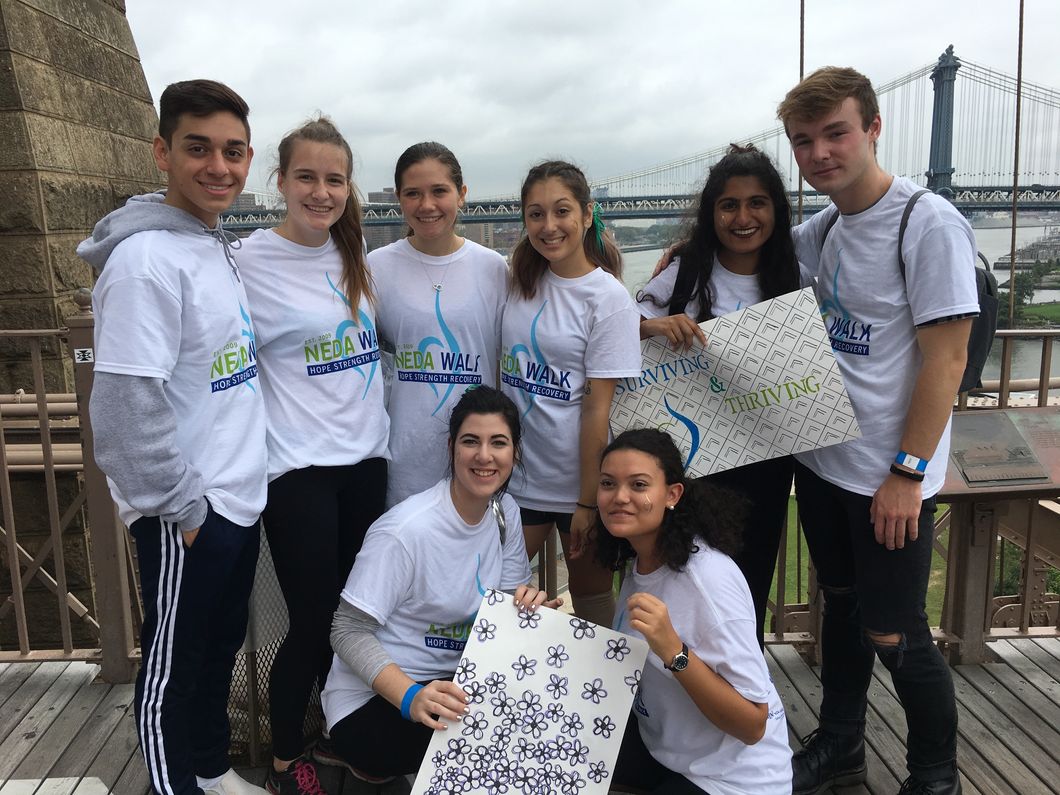On October 7th I participated in the New York City NEDA walk with a group of family and friends. This is my third year walking and I continue to be amazed by the sense of community and support there.
I originally began going to the walks as a way to celebrate my attempts in recovery and meet others who understood how I was feeling. The NEDA walk is still a wonderful source of connection and strength for me, but it has also given me a sense of purpose.
For many people living with mental illness, it can be hard to find the strength or hope to continue in their efforts of recovery. Wanting to recover is not always enough; sometimes, you need external motivation to get you through.
For me, this motivation has come from many places - school, the people I love, dance. But most recently I have found motivation for my own healing in my efforts to help others heal.
Actively participating in efforts of awareness and advocacy has given me another reason to make recovery a priority. For me to be an effective and sincere advocate, I need to value my own mental health in the same way that I value the mental health of others.
There's a saying in the recovery community: "healed people heal people." This is undeniably true. Recovered people have a unique advantage in helping others achieve recovery because they have been there. They understand completely and they know what it takes.
Helping others doesn't only benefit them though; it helps you by reinforcing your goals and your values in recovery. When you act as a model of and mentor for recovery, you call back on your own recovery experience and motivators.
For anyone in recovery from mental illness, I urge you to find a community. Whether that be a campus support group, an awareness organization, an internship working for advocacy, or an opportunity to connect to others in recovery, find someplace that gives you purpose.
Use advocacy to remain active in your recovery and to instill continuing strength and dedication. Keeping yourself a member of a community of recoverers not only provides you with mutual support, but it also holds you accountable and gives another layer of meaning to your recovery.

















